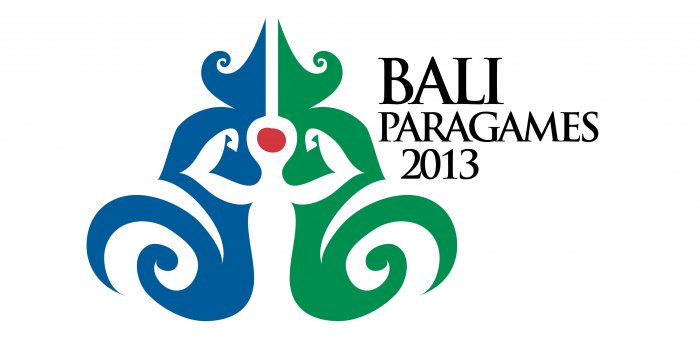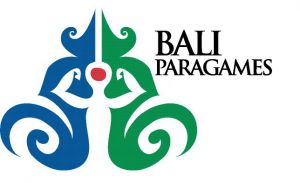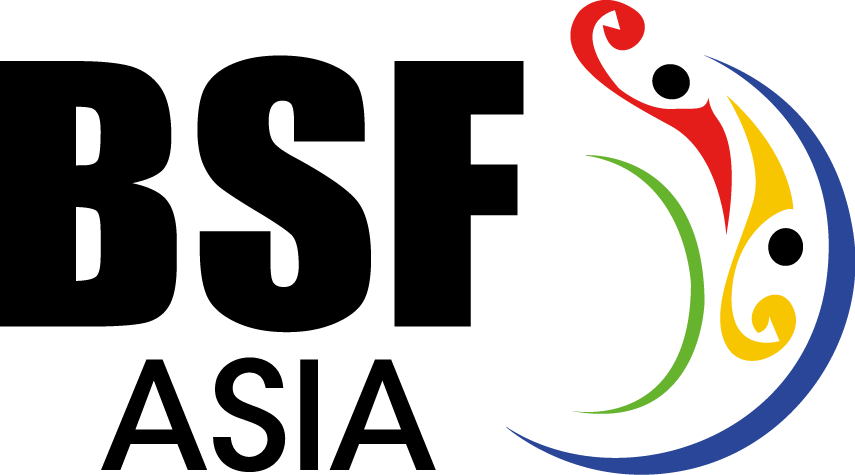3rd Bali ParaGames a success

The Games were held from the 22 July to the 2 August 2015 with teams from Australia, Indonesia, Malaysia, Singapore and Taiwan all competing for titles along with Indonesian athletes competing for individual glory! The 2015 Bali Paragames is an opportunity to showcase Disabled Sports including Wheelchair Rugby & Wheelchair Basketball, Boccia, Powerlifting, Wheelchair Shooting, Stick Fighting (Eskrima), Blind Judo, Blind Soccer and Swimming as well as introducing Goalball.
Proudly brought to you by the Yayasan Damai Olahraga Bali/BSF Asia (BSF), a registered Indonesian charity, the first Annual ParaGames were held in Bali in July 2013. The vision is to continue to grow the Games by increasing the number of competitors, local and international, through continued development of current sports and the introduction of new sports for those with disabilities in Bali and East Indonesia and raising awareness of issues that confront those with a disability. BSF believes that sport can positively change the lives of any person, whether able-bodied or living with a disability. However, for those living with disabilities this change can be nothing short of miraculous in some cases. Sport can not only improve the health and fitness of a person with disabilities but can have a more profound impact on their confidence, self esteem and overall mental health.
Wheelchair Rugby opened the games on July 24 with the Bali 4s competition but unfortunately due to the ash cloud of Mt Raung, Malaysia & Thailand were unable to attend. Australia, on their first visit to Indonesia for wheelchair Rugby did arrive, after delays and diversions, and the games were on. Australia, majority of whom are seasoned players enjoyed their experience in Bali and showed amazing sportsmanship by mentoring the novice IndonesianTeam. Australia, who’s senior team are world champions, took out the top honors and are looking forward to joining us again next year.
Wheelchair Rugby is a sport for those with cervical spinal injury and was designed by combining the elements of handball, wheelchair basketball and rugby with a lot of contact between wheelchairs. Its popularity is growing and is now played in places like America, Canada, Australia, Europe and now in Asia. Indonesia is now part of the International Wheelchair Rugby Federation (IWRF) family with other developing nations in the Asia-Oceania Zone. Indowrf is part of BSF’s development program.
Saturday, July 25 saw the Boccia competition commence under the guidance of Mr Kenneth Soh from Singapore Boccia. Boccia is a game specifically designed for athletes with severe disabilities, such as Cerebral Palsy and those with severe disabilities effecting motor skills. The Indonesian players, all relatively new to the game of Boccia were very privileged to have such a seasoned coach, classifier and official as Mr Soh guide them through the tournament and they made sure they learned as much as possible throughout the weekend. Along with Mr. Soh a group of dedicated volunteers from Singaporean company Tong Tiek, a BSF sponsor, were on hand to assist the players as they have each year since the Paragames commenced.
The second weekend of the games, 1 & 2 August saw athletes competing in all other sports. Stick Fighting (Eskrima), a traditional sport originating from the Philippines, is a weapons-based martial arts using sticks and is contested at the Paragames by deaf/mute athletes. The Paragames competition is a lead up to the International Stickfighting Competition to be held in Bali in September 2015.
Swimming competition for those living with disabilities is relatively new for many of the athletes who competed this year as many have only been swimming for a short time. Swimming is an overall fitness sport for most people but for those with a disability it is even more difficult to master as any disability can effect their balance, centre of buoyancy, co-ordination and overall confidence.
Powerlifting is the ultimate test of upper body strength and some athletes are capable of lifting 2 or 3 times their own body weight. It has different categories and is open to male and female athletes with a range of physical impairments. Competitors must lower the bar to the chest, hold it motionless on the chest and then press it upwards to arms length with locked elbows. Athletes are given three attempts and the winner is the athlete who lifts the highest number of kilograms. Indonesia is lucky to have some athletes who are world class in powerlifting, and through the Paragames and continued support from NPC, the sport can only continue to grow.
Shooting is open to athletes who have a physical impairment leading to reduced function in the lower and/or upper limb’s and uses a functional classification system, where athletes compete in sport classes based on their functional ability rather than impairment type. Many of the athletes who competed have only been involved in the sport for less than one year.
A Goalball demonstration match was held to introduce more athletes to a game that was specifically created for those living with vision impairment. The game originated in Europe as a rehabilitation program for World War II veterans and is now a Paralympic sport played work wide. The blind athletes who participated in the demonstration gave their all and were just as enthusiastic about playing as those in other sports.

Wheelchair Basketball is a fast paced game, coupling individual skill with teamwork and match strategy to score points. The competition was hotly contested by teams from Taiwan, Malaysian, Singapore and Indonesia. With Taiwan showing their overall class by taking out the competition beating Malaysia in the Gold medal play off. Singapore and Indonesia played for Bronze with the more experienced Singaporean team claiming victory. At the conclusion of what was a great tournament where teams played extremely well and showed great sportsmanship presentation of the magnificent hand carved Hanuaman Trophy’s was held at the CanangSari Restaurant in Sanur.
The Bali Paragames are now three years old and we are excited to see the increased number of competitors and interest in sports for those with disabilities. The 2016 Bali Paragames will be held in July and August with additional sports, such as sailing and lawn-bowls adding to the sports already being played. More information can be found on the Bali ParaGames website.
We hope that over the coming years all the service sectors in Bali, such as tourism, retailing, education and government, will rise up to the need to provide reasonable and equality of access to all Indonesians living with a disability and the growing number of Disabled Visitors to Bali. BSF believes that sport is a vehicle to help bring about this change. Please join us in our campaign for equality through sport.
